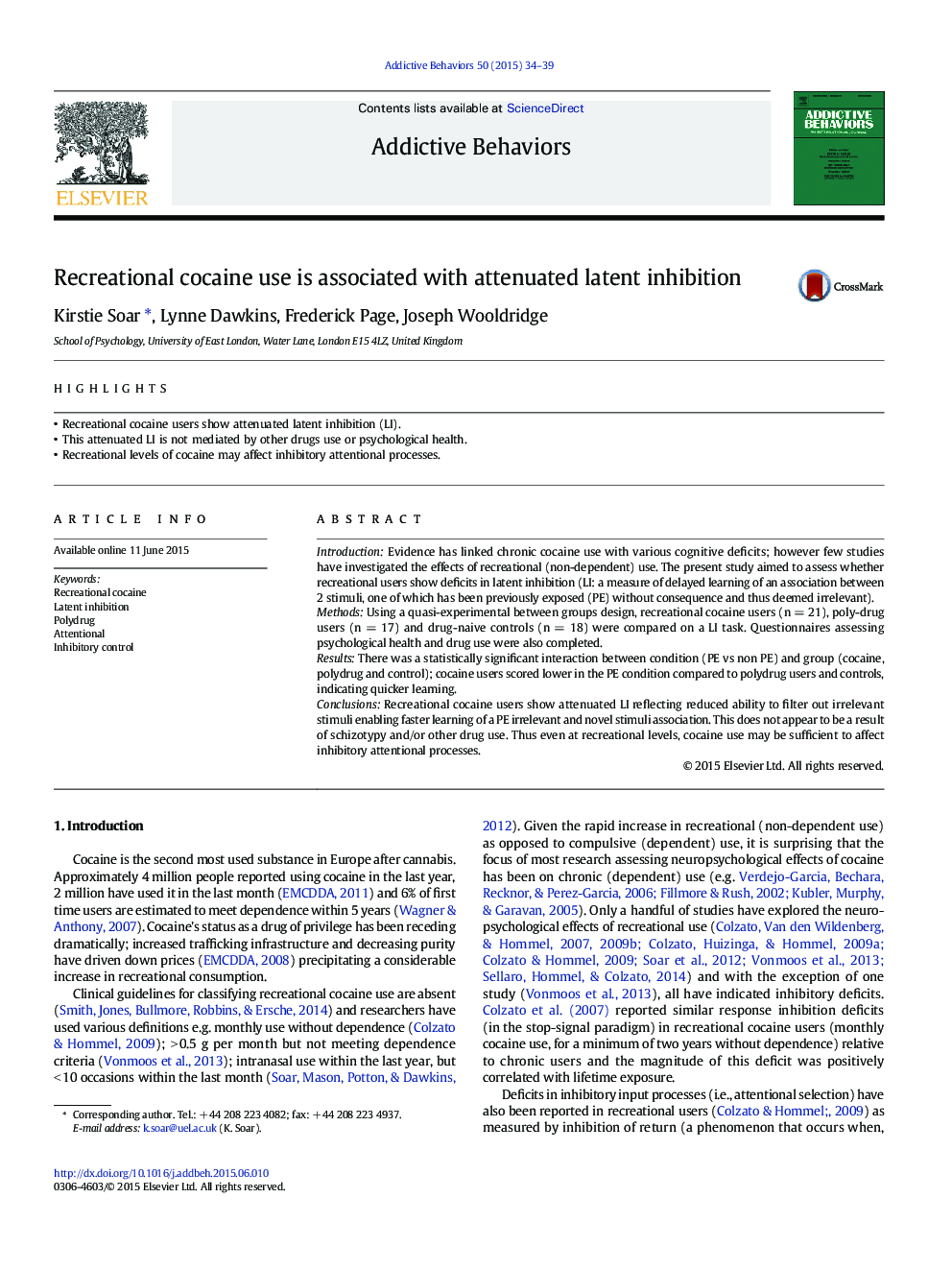| کد مقاله | کد نشریه | سال انتشار | مقاله انگلیسی | نسخه تمام متن |
|---|---|---|---|---|
| 898632 | 1472521 | 2015 | 6 صفحه PDF | دانلود رایگان |
• Recreational cocaine users show attenuated latent inhibition (LI).
• This attenuated LI is not mediated by other drugs use or psychological health.
• Recreational levels of cocaine may affect inhibitory attentional processes.
IntroductionEvidence has linked chronic cocaine use with various cognitive deficits; however few studies have investigated the effects of recreational (non-dependent) use. The present study aimed to assess whether recreational users show deficits in latent inhibition (LI: a measure of delayed learning of an association between 2 stimuli, one of which has been previously exposed (PE) without consequence and thus deemed irrelevant).MethodsUsing a quasi-experimental between groups design, recreational cocaine users (n = 21), poly-drug users (n = 17) and drug-naive controls (n = 18) were compared on a LI task. Questionnaires assessing psychological health and drug use were also completed.ResultsThere was a statistically significant interaction between condition (PE vs non PE) and group (cocaine, polydrug and control); cocaine users scored lower in the PE condition compared to polydrug users and controls, indicating quicker learning.ConclusionsRecreational cocaine users show attenuated LI reflecting reduced ability to filter out irrelevant stimuli enabling faster learning of a PE irrelevant and novel stimuli association. This does not appear to be a result of schizotypy and/or other drug use. Thus even at recreational levels, cocaine use may be sufficient to affect inhibitory attentional processes.
Journal: Addictive Behaviors - Volume 50, November 2015, Pages 34–39
